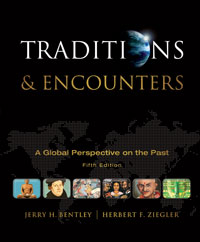1 A) Bulgaria. B) Germany. C) Greece. D) Ireland. E) Italy. 2 A) he had been a unifying force between Serbia and the Austro-Hungarian Empire. B) his death caused Russia to rush to the defense of Austria. C) his death caused Germany to rush to the defense of Serbia. D) his death ended plans for national self-determination within the Austro-Hungarian empire. E) his death brought to a head the tensions underlying the alliances in eastern and western Europe. 3 A) an expensive naval race. B) competition for foreign markets. C) tariff wars. D) competition for colonies in east and southwest Africa. E) All these answers are correct. 4 A) be quick and agile and slip through an enemy blockade. B) spy on one's enemies. C) protect merchant shipping and conduct high-seas battles. D) launch underwater attacks with unmanned torpedoes. E) All these answers are correct. 5 A) create a mutually advantageous free trade association. B) provide mutual defense and support in case of attack. C) cooperatively share resources in African colonies. D) avoid war. E) All these answers are correct. 6 A) a quick invasion of Great Britain and destruction of the British navy. B) a quick invasion of Russia so that the war would only be fought on one front. C) a blockade of France to starve that country into submission. D) a swift knockout of France, combined with defensive action against Russia. E) simultaneous invasions of France, Britain, and Russia, with heavy reliance on the navy. 7 A) machine guns B) armored tanks C) airplanes D) poisonous gas E) nuclear submarines 8 A) more fluid, as the Germans made inroads into Russia. B) a deadlock, with German and Austrian troops trapped for months in trenches. C) more encouraging for the Allies, especially on the Balkan peninsula. D) not as deadly, with far fewer casualties. E) over quickly. 9 A) battle line in eastern Europe and the Balkans. B) deadly territory between opposing trenches. C) killing field around Verdun. D) German route of invasion through Belgium. E) peninsula of Gallipoli. 10 A) The demands of total war actually reduced opportunities for women. B) Women engaged in combat for the first time. C) Women in many countries received the vote in the years after the war. D) Women gained new economic status that continued long after the war. E) All these answers are correct. 11 A) demand control of German-held islands in the Pacific. B) reduce China to the status of a Japanese protectorate. C) demand that the British turn over control of Hong Kong. D) reduce Korea to the status of a Japanese protectorate. E) All these answers are correct. 12 A) it sounded the death-knell of the Ottoman empire. B) it demonstrated that the British navy was no match for German dreadnoughts. C) this decisive battle finally broke the stalemate on the western front. D) this British-directed debacle cost the lives of many Canadian, Australian, and New Zealander troops. E) it demonstrated that, after the arrival of American troops, the Allies would win the war. 13 A) Paris settlement of the Great War B) debacle at Gallipoli C) German thrust toward Paris in August 1914 D) Russian revolution in November 1917. E) days in August leading up to the outbreak of the Great War. 14 A) Arabs. B) Egyptians. C) Greeks. D) Serbs. E) Turks. 15 A) Bolsheviks stormed the Winter Palace. B) an assassination attempt revealed that his family was in danger. C) troops garrisoned in the capital mutinied. D) German forces seized the Ukraine. E) All these answers are correct. 16 A) continued to use the police apparatus of the tsar. B) continued policies that discriminated against minorities. C) denied Russians the right to free speech and free press. D) promised to continue the war to victory. E) launched an all-out attack on the workers' soviets. 17 A) would be led by rural peasants, not industrial workers. B) would be led by a small, highly-disciplined party acting on behalf of the workers. C) would be led by the intelligentsia acting on behalf of all of Russia's people. D) would not succeed until Russian workers were joined by workers all over the world. E) could not succeed if it alienated the church and the military. 18 A) its long-standing friendship with Great Britain. B) the United States' desire to acquire German colonies in the Pacific. C) American prejudice against German immigrants. D) the political ambition of Woodrow Wilson. E) Germany's resumption of unrestricted submarine warfare against the United States. 19 A) the Allies agreed to let ethnic self-determination set the boundaries of the middle east. B) Britain and France were determined to strip Germany of military power. C) Russia was forced to cede much of Manchuria to Japan. D) Woodrow Wilson gained acceptance of his Fourteen Points. E) All these answers are correct. 20 A) It was conceived by Woodrow Wilson. B) It was rejected by the U.S. Congress. C) It was designed to solve international disputes through arbitration. D) It had no power to enforce its decisions. E) It was dominated by the countries of Europe.





